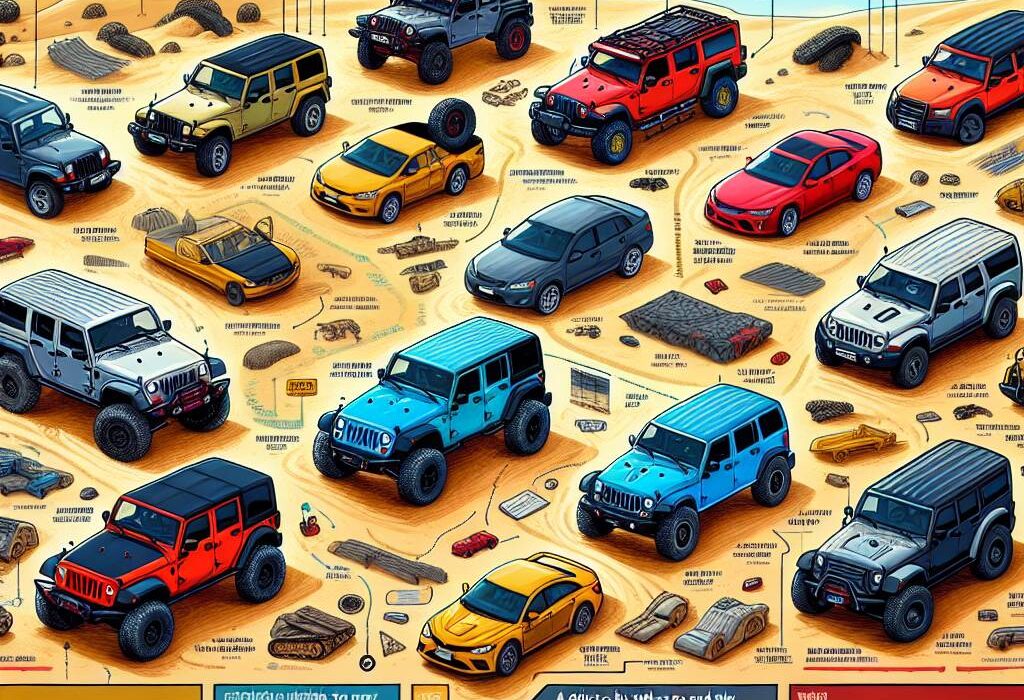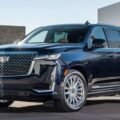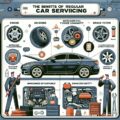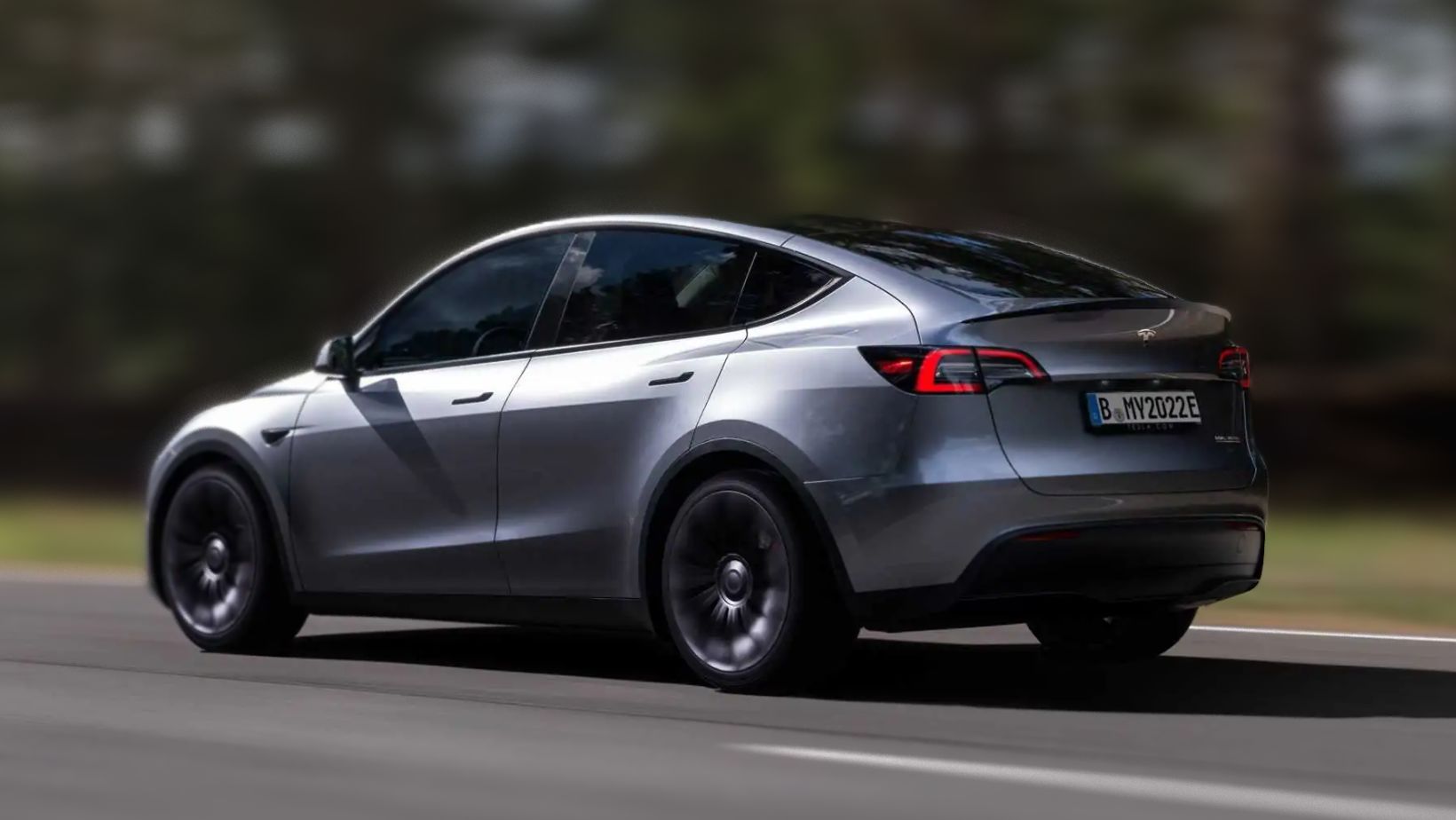Explore essential features, buying tips, top models, and maintenance advice for off-road cars to elevate your adventure experience.Are you ready to embark on thrilling adventures off the beaten path? Whether you’re a seasoned off-roading veteran or a first-time buyer, understanding the world of off-road cars is essential for making an informed decision. In this comprehensive guide, we will explore the key features that define off-road vehicles, helping you identify which model best suits your terrain and usage needs. Additionally, we’ll discuss crucial factors in your buying journey, from new versus used vehicles to budgeting for costs beyond the purchase price. Plus, we’ll highlight some of the top off-road car models that are perfect for adventure enthusiasts. With proper maintenance tips to ensure your vehicle’s longevity, this guide will prepare you for unforgettable off-road experiences. Dive in and discover the perfect companion for your next wilderness adventure!
Understanding Off-Road Cars: Essential Features To Consider
When diving into the world of off-road vehicles, it’s crucial to understand the key features that differentiate them from standard cars. An off-road cars buying guide should include a focus on these essential attributes to help ensure your vehicle can handle rugged terrains and demanding adventures.
Here are some critical features to consider:
- Ground Clearance: A higher ground clearance helps prevent the undercarriage from getting stuck or damaged on rocky or uneven surfaces.
- Tires: Off-road tires often have deeper treads for enhanced traction on loose surfaces like mud, sand, or gravel. Look for all-terrain or mud-terrain options.
- Suspension System: A robust suspension system is vital for absorbing shocks and impacts from uneven terrain, providing both comfort and stability during your ride.
- Four-Wheel Drive (4WD): Essential for maintaining traction and navigating challenging landscapes, a reliable 4WD system allows for better control of the vehicle on slippery or steep surfaces.
- Approach and Departure Angles: These angles determine how steep of an incline or decline the vehicle can navigate without getting stuck or damaged.
- Engine Power: A powerful engine can provide the necessary torque to tackle difficult terrains and overcome obstacles effectively.
- Durability: Off-road cars should be built to withstand harsh conditions. Look for models with robust frames and durable components.
- Water Fording Capability: If you plan to cross water, ensure the vehicle has suitable seals and a proper air intake location to prevent water damage.
By paying attention to these features, you’ll be better equipped to choose an off-road vehicle that meets your needs and can tackle a variety of terrains with ease. A well-informed decision will make your adventures not just exciting but also safe and enjoyable.
Determining Your Off-Road Needs: Terrain and Usage
When considering your off-road car options, the first step is to understand your individual needs based on the type of terrain you’ll be navigating and how you plan to use the vehicle. Different off-road environments demand distinct capabilities from your vehicle, so assessing where you’ll be driving is crucial in making the right choice.
Types of Terrain
- Rocky Trails: These terrains require vehicles with high ground clearance and excellent suspension systems to handle bumpy and uneven surfaces.
- Mud and Swamps: Look for off-road cars with aggressive tire treads and good water-fording capability to prevent getting stuck.
- Sandy Dunes: Vehicles designed for sand will benefit from lower tire pressure to increase surface area and prevent sinking.
- Snow and Ice: In icy conditions, ensure your off-road vehicle is equipped with four-wheel drive, and consider models that allow for easy tire changes to fit winter tires.
Intended Usage
Understanding how you’ll use your off-road vehicle can significantly influence your choice. Ask yourself these questions:
- Will you be using it for recreational purposes, like camping and trail exploration?
- Do you plan to enter competitive off-roading events?
- Will it serve a dual purpose, such as daily commuting and weekend adventures?
By answering these questions, you can narrow down your choices to models that excel in your envisioned environments and meet your usage requirements. Combining your terrain preferences with a clear understanding of your vehicle’s intended use will greatly enhance your chances of selecting the ideal car from an off-road cars buying guide.
Off-Road Cars Buying Guide: New vs. Used Vehicles
When considering an off-road cars buying guide, one of the most crucial decisions you’ll face is whether to purchase a new or used vehicle. Each option has its advantages and potential drawbacks, and understanding these can help you make an informed choice.
New Off-Road Cars
Purchasing a new off-road car offers the benefit of the latest technology and features designed for rugged terrains. With advancements in off-road capabilities, such as enhanced traction control, differential systems, and improved suspension, a new vehicle can provide superior performance. Additionally, new cars typically come with manufacturer warranties, safeguarding your investment against early wear and mechanical failures.
Pros of New Off-Road Cars:
- Up-to-date technology and safety features
- Customization options available
- Manufacturer warranties
- Reliability and peace of mind regarding maintenance
Cons of New Off-Road Cars:
- Higher purchase price
- Depreciation hits quickly
- Insurance costs may be higher
Used Off-Road Cars
A used off-road car can be an excellent option for buyers looking for value without sacrificing performance. Many used vehicles are still in great condition and carry the rugged capabilities needed for off-road adventures. Moreover, you often get the chance to purchase a higher trim level or a model with additional features at a lower price point.
Pros of Used Off-Road Cars:
- Lower purchase cost
- Less depreciation than new cars
- Potential for better financing options
- Ability to find well-maintained models with upgrades
Cons of Used Off-Road Cars:
- Potential for hidden mechanical issues
- Lack of manufacturer warranty
- Older technology and safety features
Whether to choose a new or used off-road car largely depends on your budget, comfort level with potential repairs, and desire for the latest features. Weighing these factors within the context of your specific off-roading needs will guide your decision-making process in the off-road cars buying guide.
Budgeting for Off-Road Cars: Costs Beyond the Purchase Price
When considering your budget for an off-road vehicle, it’s essential to remember that the initial purchase price is just the tip of the iceberg. In this off-road cars buying guide, we will delve into various costs that will arise long after you drive your new vehicle off the lot.
Here are some key factors to consider when budgeting for your off-road adventure:
- Insurance: Insurance premiums for off-road vehicles can vary widely based on factors like the vehicle’s make, model, and intended use. Ensure to get quotes from multiple providers to find the best coverage at an affordable price.
- Fuel Costs: Off-road vehicles, especially those with larger engines, can consume fuel at a high rate. Factor in fuel expenses based on your anticipated usage, including regular trips to remote locations.
- Maintenance and Repairs: Off-road vehicles endure demanding conditions that can lead to more frequent repairs compared to standard vehicles. Maintenance costs, including oil changes, tire rotations, and brake inspections, should be accounted for in your budget.
- Upgrades and Accessories: Many off-road enthusiasts opt for upgrades such as larger tires, enhanced suspension systems, or additional lighting. These enhancements can significantly increase your overall spending, so prioritize which modifications are necessary.
- Registration and Licensing: Depending on where you live, there may be additional fees for registering an off-road vehicle. Always check local regulations to avoid surprises.
- Emergency Equipment: Having the right gear is crucial for off-road adventures. Items such as recovery kits, first aid supplies, and navigation tools should be budgeted into your overall expenses.
Considering these ongoing costs will prepare you for the financial commitment associated with owning an off-road vehicle. With careful planning and an understanding of the overall expenses, you can ensure that your adventure remains enjoyable and worry-free.
Top Off-Road Car Models for Adventure Enthusiasts
When it comes to choosing the right vehicle for off-road adventures, there are several models that stand out in terms of capabilities, durability, and overall performance. Below are some of the top off-road car models that are perfect for adventure enthusiasts:
- Jeep Wrangler: Renowned for its ruggedness, the Jeep Wrangler offers exceptional off-road capabilities, a strong aftermarket support for modifications, and a variety of trims to suit different preferences.
- Toyota 4Runner: This SUV is a favorite among off-roaders due to its reliability, body-on-frame construction, and a powerful V6 engine. It excels in challenging terrains and boasts ample cargo space for gear.
- Ford Bronco: The revival of the Bronco has been met with excitement. Its modern tech, available four-wheel drive, and various off-road packages make it a versatile option for adventurers.
- Land Rover Defender: Combining luxury with utility, the Defender is built for serious off-roading while offering a premium interior experience. This model’s all-terrain capabilities are impressive.
- Subaru Outback: Ideal for those who want a balance between daily driving and weekend adventures, the Outback features Subaru’s renowned all-wheel drive, making it a practical choice for light off-roading.
- Chevrolet Colorado ZR2: For truck enthusiasts, the Colorado ZR2 provides a great mix of off-road performance and truck utility. It features advanced suspension and protective gear that enhance its off-road capabilities.
Selecting from these models ensures not just an enjoyable experience but also reliability on various terrains, making them top choices in the off-road cars buying guide. When considering your options, think about how you plan to use the vehicle and the types of landscapes you will encounter, as these factors will influence your final decision.
Maintenance Tips for Off-Road Cars to Ensure Longevity
Maintaining your off-road vehicle is crucial for ensuring it performs well and lasts over time. Here are some key maintenance tips to keep your off-road car in top condition:
By following these maintenance tips, you can enhance the reliability and lifespan of your off-road vehicle, ensuring countless adventures ahead. Remember that regular check-ups and maintenance tie closely with achieving the best performance from your vehicle, a crucial aspect of your off-road cars buying guide.
Frequently Asked Questions
What should I consider when buying an off-road car?
When purchasing an off-road car, you should consider factors such as the vehicle’s ground clearance, four-wheel drive capability, suspension system, tire type, and overall durability. Additionally, think about the kind of terrain you plan to navigate.
What are the best off-road cars available on the market?
Some of the best off-road cars include the Jeep Wrangler, Ford Bronco, Toyota 4Runner, Land Rover Defender, and the Subaru Outback. Each vehicle has its own strengths depending on the type of off-roading you intend to do.
How important is ground clearance in an off-road car?
Ground clearance is crucial in an off-road car as it allows the vehicle to traverse rocky or uneven terrain without damaging the undercarriage. Higher ground clearance typically translates to better performance in off-road conditions.
What type of tires should I choose for off-roading?
For off-roading, you should choose all-terrain or mud-terrain tires, as they provide better traction and durability. Consider the specific terrain you will be driving on to select the best tire type.
Are there specific brands known for manufacturing reliable off-road vehicles?
Yes, brands like Jeep, Toyota, Ford, Land Rover, and Subaru are well-known for producing reliable off-road vehicles due to their rugged designs and advanced four-wheel-drive technologies.
What is the importance of a vehicle’s suspension system in off-roading?
A vehicle’s suspension system is vital for off-roading as it affects how the car absorbs shocks from uneven terrain. A good suspension provides better stability, wheel articulation, and overall comfort during rough rides.
Can I modify my off-road car for better performance?
Absolutely! Off-road vehicles can be modified with upgrades like lift kits, enhanced suspension, upgraded tires, and additional protective gear. These modifications can significantly enhance off-road performance and capability.












